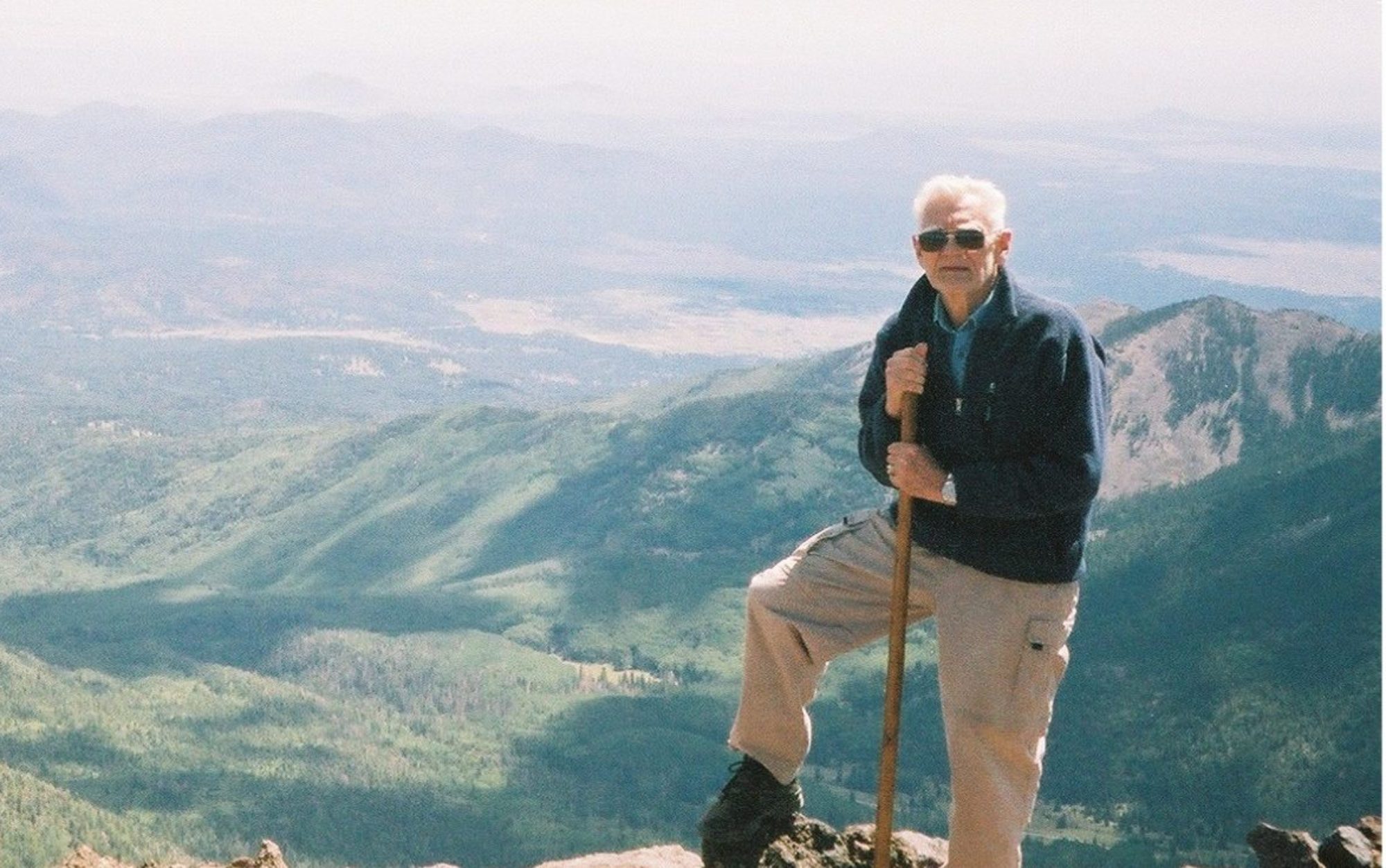By Robert Wheeler
Advancing through the nonagenarian years and losing many contemporary friends and relatives causes me to look back on the years and wonder what it’s all about. I have always tried to balance improving myself for the future with meeting immediate needs and desires. There were times when tasks were so difficult that I did not know how I was going to succeed. There were times of anguish over hardships and failures. Then there were times of elation over successes and accomplishments, and times of inspiration over glimpses of insight and progress. Most importantly, though, there have been times of wonder and doubt over why all of this was happening—did it have meaning and purpose? Some people seem secure in religious beliefs that answer that question, but conflicts between dogmatic beliefs and objective knowledge have made these beliefs questionable for me. Now, though, I feel a sense of contentment and satisfaction that it all fits together as part of an evolving scheme moving towards something bigger and better than my personal self and those around me—toward some type of advancement personally and species-wide, possibly transcendent to our observable environment.
A major source of wonder has been the question of whether my situation is the result of creation by a transcendent force that may still provide influence or the result of adaptive evolution, and whether my mind is only an epi-phenomenon of my brain’s neurological processes or if it has an existence independent of my body. It amazes me to realize that these questions have now lost their importance. It doesn’t seem to make much difference whether there really is a deity or not, because what is now known about our environment and its history indicate that it could be either way, or even both ways at the same time—a great paradox from need to believe, doubt, and pursue knowledge.
Recent scientific findings indicate that despite the extensive knowledge available about our universe, our view is limited and there is much beyond our view that may extend to an eternity within which anything and everything exists, even other universes and God. However, an esoteric metaphysical power is not necessary to explain this existence, and the boundary between physical and metaphysical or between natural and supernatural is now obscure.
History and anthropology indicate that ever since humans were capable of abstract reasoning, they have wondered about existence and have developed belief systems involving transcendent powerful deities. These beliefs formed religions that have been instrumental in advancing civilization, culture, welfare, and the comforts we now enjoy. They have produced challenges and tensions without which development and technology would have languished.
Psychology, sociology, and physiology indicate that religious beliefs and religions have alleviated many human needs including support, belongingness, forgiveness, charity, fraternity, coherence, certainty, meaning, and purpose. However, conflicts with modern experiences and research findings are causing many people to abandon traditional religions losing these benefits. The recent increase in personal dissatisfaction, anxiety, depression; community murder, robbery, violence; and global aggression, terrorism, conflict have been attributed to this lose. Our distant ancestors thought a lot about meaning of life and developed these religions that still dominate society. We need to resume such thinking and update religions.
I don’t know if God or any other esoteric power really exists and I don’t rely on favors from such power, but as I try to draw conclusions from my experiences and accumulated knowledge, a sense of respect and wonder about the unknown creates in me a feeling of awe and reverence. So, what does all this mean? What is its impact? I am content with the realization that I (and we) don’t know and that the answers may be unknowable, and that I can enjoy pursuing an ontological quest with a feeling of development, unfolding, contribution, and flourishing. Soon I will take the biggest step in that pursuit—the ultimate experience in the quest for knowledge about whether there is really anything beyond mortal existence.
Earthly demise is something we all will experience and only then will our search for knowledge be satisfied. The human body is limited in its ability to absorb new knowledge and its ability to adjust to new conditions, both of which inevitably occur. Fresh minds are needed for advances to take place in our material world. I am ready to make room for them. I can now move on to that ultimate question of what happens to consciousness after physical death of the material body—the great experiment in which we all participate.
This is a great, wide, wonderful world to live in. It is full of fascinating mysteries and challenges with opportunities for growth and advancement for both ourselves and for our fellow humans. If we can maintain awareness of that process while meeting immediate needs, our lives will be meaningful and satisfying.

To the ontosscience.com owner, Thanks for the well-structured and well-presented post!
I do agree with all the ideas you’ve presented in your post. They are really convincing and will certainly work. Still, the posts are too short for novices. Could you please extend them a bit from next time? Thanks for the post.
Its like you learn my thoughts! You seem to understand so much approximately this, such as you wrote the ebook in it or something.
I believe that you could do with some % to force the message home
a bit, but other than that, that is wonderful blog. A great read.
I will certainly be back.!